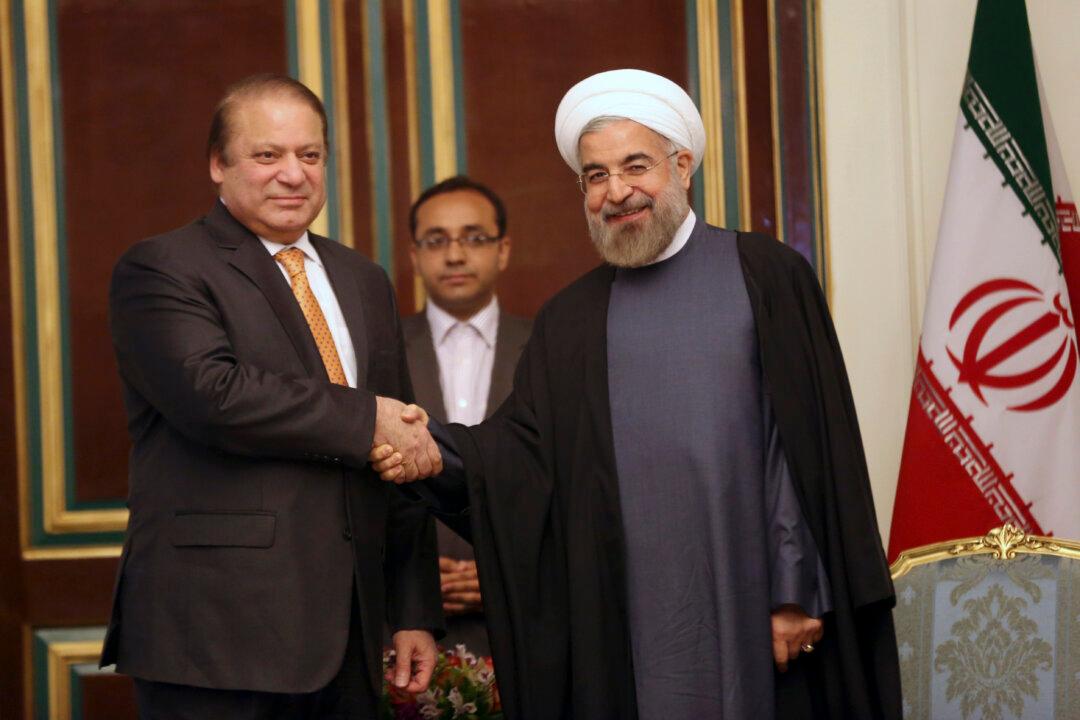NEW DELHI—The Iranian nuclear deal, if implemented, could alter many strategic equations in West Asia, including Iran’s relations with neighbors India and Pakistan.
The nuclear deal is sure to give Iran an upper hand in West Asia. However, strengthening Indian-Iranian relations may not bode well for Iranian-Pakistani relations.
Undivided India and Iran have shared long historic and cultural ties dating back from the Indus Valley Civilization. Cultural and economic ties however, deteriorated during the period of Aurangzeb’s rule in India and worsened during the British colonial rule in India. Further, with the partition of India and Pakistan in 1947, after India lost geographic contiguity with Iran, Pakistan became a crucial factor in determining relations between Iran and India.
Pakistan, formed as an Islamic state, soon discovered Iran as a close friend, and the Cold War brought Iran and Pakistan even closer. During the Cold War, both Iran and Pakistan were aligned with the United States and joined the Central Treaty Organisation (CENTO). Both countries designated the other with most-favored-nation status.
India on the other hand, followed a non-alignment policy, refraining from aligning with either the Soviet Union or the United States. India’s closeness with the Soviet Union during the Cold War befuddled Iranians and prevented Iran and India from fostering closer ties.
This along with India’s support for Gamal Abdel Nasser of Egypt, who was unifying the Arab world while overthrowing monarchies, also brought Pakistan and Iran closer to each other. Meanwhile, Pakistan’s venture to develop nuclear weapons during the 1970s strained relations with the United States and resulted in a cut-off for economic assistance.
Later in 1979, during the Iranian Revolution, Pakistan sent a high-level official to Iran to support friendly ties and demonstrate recognition of the revolution and new leader Ayatollah Ruhollah Khomeini.
